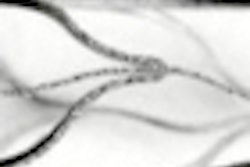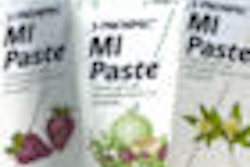A new glass ionomer cement with antibacterial properties shows promise for use in clinical dentistry in initial lab-based experiments, according to a new study (Dental Materials, March 8, 2011).
Researchers from Indiana University and Purdue University tested a light-curable glass-ionomer cement using newly synthesized poly(quaternary ammonium salt) (PQAS)-containing polyacid to study the effect of the PQAS on the compressive strength and antibacterial activity of the cement.
The functional QAS and constructed PQAS were synthesized, characterized, and formulated into an experimental high-strength cement. Compressive strength (CS) and Streptococcus mutans viability were used to evaluate the mechanical strength and antibacterial activity of the cement. Fuji II LC cement was used as a control.
All PQAS-containing cements showed a significant antibacterial activity and an initial CS reduction, the researchers noted. Increasing chain length, loading, and grafting ratio significantly enhanced antibacterial activity but reduced the initial CS. In addition, the experimental cement showed less CS reduction and higher antibacterial activity than Fuji II LC.
"Within the limitations of this study, it appears that the experimental cement is a clinically attractive dental restorative due to its high mechanical strength and antibacterial function," the researchers concluded.



















